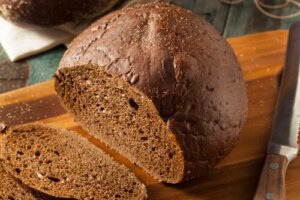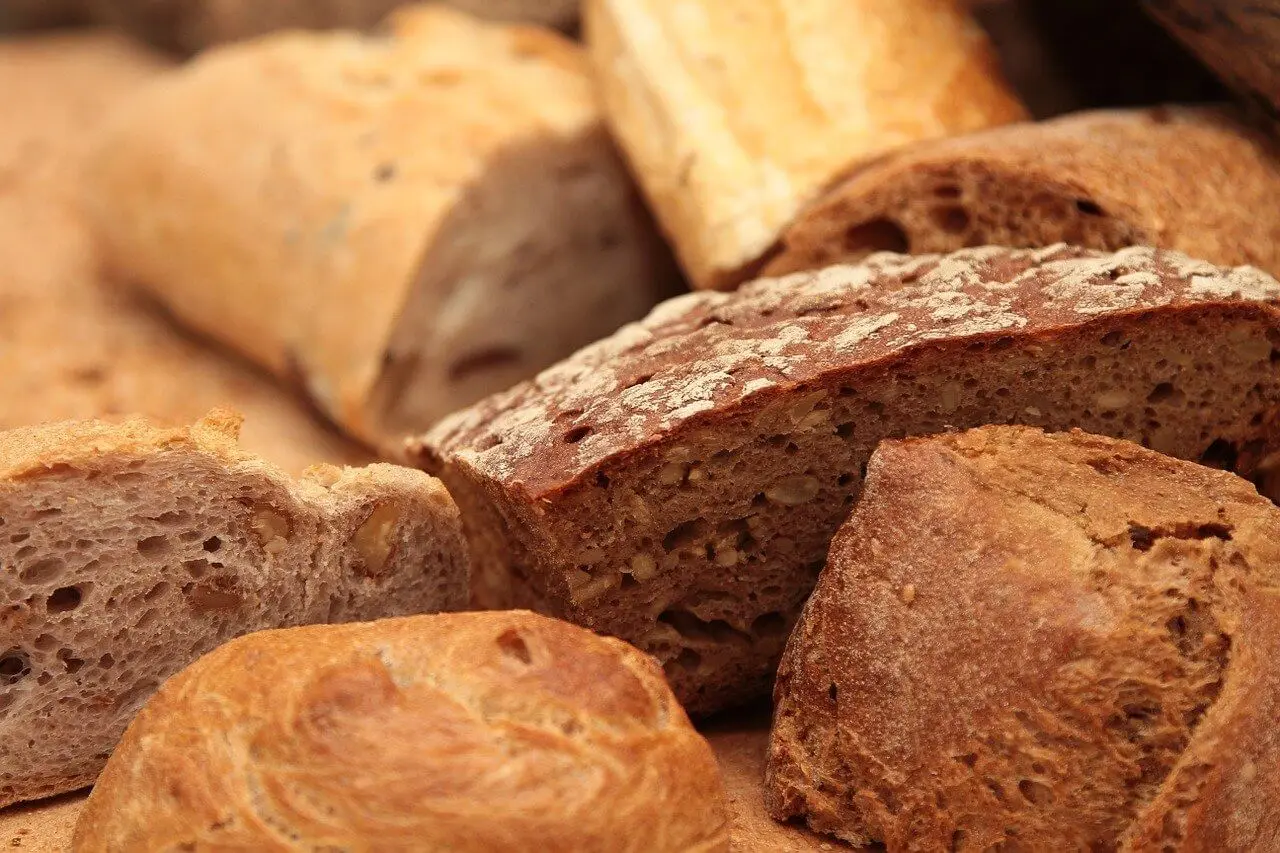Is Rye Bread a Good Choice for Weight Loss?


Written and verified by the nutritionist Saúl Sánchez Arias
Rye bread has become fashionable in recent years for weight loss. It’s an alternative to wheat bread and could well be healthier.
Many people try to include it in their diet in order to improve weight loss results. We’re going to tell you if this makes sense or not.
Before starting, it should be noted that in order to consolidate a positive change in body composition, you need to combine a series of good habits and maintain them over time. Among them, we must emphasize the need to practice physical activity on a regular basis.
Rye bread and satiety in the weight loss plan
The first thing to say about rye bread is that it’s made with a better quality flour than wheat. It has a lower level of processing and a higher fiber content.
As a result, it will have a lower impact on blood sugar levels, preventing the development of metabolic problems such as insulin resistance and subsequent type 2 diabetes. This is decisive when the objective is to lose weight.
In addition, the fiber itself will stimulate the feeling of satiety. This is evidenced by research published in the journal Nutrition Reviews.
It’s important to ensure an intake of at least 25 grams of fiber to avoid excessive appetite and improve the functioning of the digestive tract. We’re talking about an element that increases the volume of fecal bolus, which translates into a lower incidence of constipation.
On the other hand, fiber serves as an energetic substrate for the bacteria that inhabit the digestive tract. This will be of great importance in improving the microbiota profile. A study published in the journal Alimentary Pharmacology & Therapeutics shows that not only the microorganisms benefit, but also the rest of the organism.
Thanks to fiber, the microbiota generates a series of short-chain fatty acids with anti-inflammatory potential. These are determinant in order to avoid digestive alterations.

Is rye bread useful to lose weight?
Rye bread won’t help you lose weight as such. It can help to improve satiety and is a better alternative than wheat bread, but it won’t make you lose weight by itself. To experience a positive change in body composition, what you need to do is to generate an energy deficit.
Some substances may enhance fat mobilization, such as caffeine, for example. However, without good habits, no great progress will be made.
The key to reducing adipose tissue lies in combining a slightly hypocaloric diet with continuous strength training. Besides, it’s decisive to sleep well every night, ensuring at least 7 or 8 hours of good quality.
Anyway, for those who like to use bread as the main source of carbohydrates, rye bread can be an option to consider, as is corn bread. In this case, the most important thing is to ensure that the flour used has a low level of refinement.
To learn more: 7 Negative Effects of Refined Flour
Beware of bread as an accompaniment
One of the dangers of bread consumption is the fact of using it as an accompaniment to meals. In this case, the carbohydrate ration would be doubled, which doesn’t usually work well.
These nutrients are the main energy substrate for high-intensity activities, but if the exercise rate is low, they can promote metabolic problems.
This is especially the case with free sugars, although it can also happen with complex sugars. In fact, there’s evidence that limiting carbohydrates in the diet improves metabolic flexibility and control of type 2 diabetes.
These kinds of protocols need to be supervised by a professional.
The key is to ensure a quality carbohydrate intake in conjunction with plenty of exercise. If bread is introduced into a meal, it should be as the main source of these nutrients in the meal.

Discover more here: How to Make Homemade Rye and Spelt Bread
Rye bread could be included in a weight loss diet, but it isn’t a “magical” solution
The option of including rye bread in a weight loss diet can give good results in the medium term. However, this isn’t because of the effects of this food on the state of body composition as such, but because of its capacity to generate satiety. It’s best to alternate this product with others with a high carbohydrate content.
The weight loss process is not linear, nor is it often very fast.
It’s advisable to establish a lifestyle that can be maintained and that generates sufficient adherence. Otherwise, it could lead to frustration and abandonment, with a subsequent rebound effect.
All cited sources were thoroughly reviewed by our team to ensure their quality, reliability, currency, and validity. The bibliography of this article was considered reliable and of academic or scientific accuracy.
- Rebello, C. J., O’Neil, C. E., & Greenway, F. L. (2016). Dietary fiber and satiety: the effects of oats on satiety. Nutrition reviews, 74(2), 131–147. https://doi.org/10.1093/nutrit/nuv063
- Simpson, H. L., & Campbell, B. J. (2015). Review article: dietary fibre-microbiota interactions. Alimentary pharmacology & therapeutics, 42(2), 158–179. https://doi.org/10.1111/apt.13248
- Saslow, L. R., Mason, A. E., Kim, S., Goldman, V., Ploutz-Snyder, R., Bayandorian, H., Daubenmier, J., Hecht, F. M., & Moskowitz, J. T. (2017). An Online Intervention Comparing a Very Low-Carbohydrate Ketogenic Diet and Lifestyle Recommendations Versus a Plate Method Diet in Overweight Individuals With Type 2 Diabetes: A Randomized Controlled Trial. Journal of medical Internet research, 19(2), e36. https://doi.org/10.2196/jmir.5806
This text is provided for informational purposes only and does not replace consultation with a professional. If in doubt, consult your specialist.








